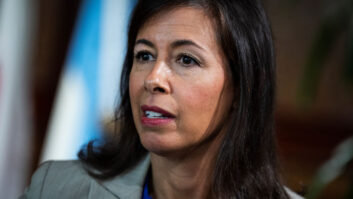WASHINGTON � The National Translator Association has joined the opposition to Microsoft�s White Space plan. NTA pointed out the recent Hurricane Harvey disaster relief work as a clear example of why free over-the-air TV stations should not be “destroyed” by the Rural Airband Initiative, according to fiercewireless.com.
Microsoft�s Rural Airband Initiative calls for three former TV channels to be made available in each market to facilitate the mass-market adoption of the �white spaces� broadband technology. �MS says the�channels can be made available nationwide on an unlicensed basis with �no impact at all on full-power broadcasters, no impact on low-power broadcasters in the vast majority of the United States and only a �de minimis� impact on low-power broadcasters in a few areas,� according to the same article.
��Microsoft describes the spaces between full power TV stations as so-called vacant channels. NTA does not know anyone else who calls these channels �vacant.� Currently they are occupied by 3,776 licensed UHF and VHF translator stations, and 1,968 licensed UHF and VHF Low Power TV stations,� said the NTA, quoted in the same article.� �…affected industries and the public are just starting to recognize the adverse effect of the TV spectrum repacking on Low Power Television (LPTV) stations and television translators from the recent incentive auction, and it’s becoming clear that sufficient spectrum will not be available for LPTV and TV translators to survive the displacement.�
MS is not the only proponent of the initiative though. TechNet, a bipartisan network of technology CEOs and senior executives, is in favor, as is Voices for Innovation, a community of more than 90,000 technology professionals and consumers.
�







